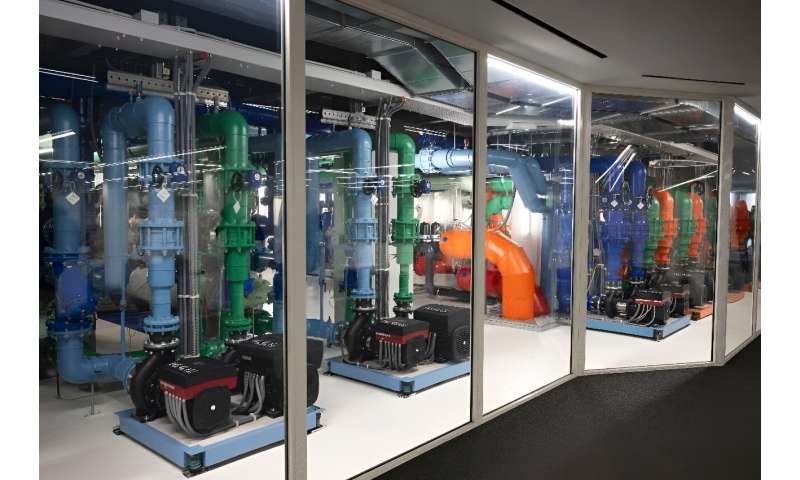
The world needs to better manage its freshwater resources but thirsty new technologies touted as solutions could lead to “serious problems” if left unchecked, a UN report warned Friday.
Roughly half of the planet’s population is facing grave water shortages, with climate change-linked droughts affecting more than 1.4 billion people between 2002 and 2021, the report for the UN cultural agency UNESCO said.
As of 2022, more than 2 billion people were without access to safely managed drinking water, while 3.5 billion people lacked access to decent toilets, it added.
On top of that, pharmaceuticals, hormones and industrial chemicals are seeping into the world’s rivers.
The report, titled “Water for prosperity and peace”, called for more water education, data collection and investment to address the crisis.
It also highlighted the limits of new computer-led solutions.
“An array of technologies is available to improve both water supply, water use efficiency and the quality and extension of” sanitation services, it said.
But “several rapidly emerging technologies are highly water-intensive and, if left unchecked, could lead to serious problems in the near future.”
Artificial intelligence (AI) had “the potential to enhance (river) basin management, emergency response, and the operation and maintenance of water supply and wastewater treatment plants,” said the report.
But “AI and related technologies require large volumes of water for computer cooling systems, in addition to the (often water-intensive) energy required to power the equipment.”
-

Carbon capture and storage is ‘extremely energy- and water-intensive’
-

AI and related technologies require ‘large volumes of water for computer cooling systems’
Flawed solutions
While climate change is projected to intensify patterns of record rainfall and drought in coming years, solutions to tackle that problem were also using up too much water, it added.
One such technique, called carbon capture and storage, siphons off CO2 from the exhaust of fossil fuel-fired power plants and heavy industry such as steel and cement factories in a bid to reduce planet-heating carbon pollution.
But “carbon capture and storage systems… are extremely energy- and water-intensive,” the report said.
Energy production accounts for between 10 and 15 percent of global water withdrawals, both to extract fossil fuels and cool thermal and nuclear power stations, it said.
While wind, solar and geothermal energy systems are more water-efficient, they still require lithium batteries for power storage.
Yet the extraction of lithium and other critical minerals for solar panels “is usually highly water-intensive, with significant risks to water quality” especially groundwater, ecosystems and local populations, the report said.
© 2024 AFP
Citation:
UN warns against thirsty tech to solve water crisis (2024, March 22)
retrieved 22 March 2024
from https://phys.org/news/2024-03-thirsty-tech-crisis.html
This document is subject to copyright. Apart from any fair dealing for the purpose of private study or research, no
part may be reproduced without the written permission. The content is provided for information purposes only.

